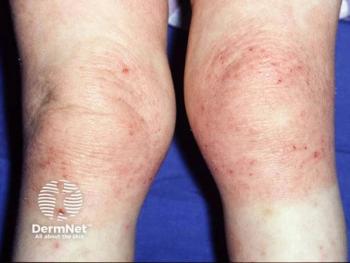
Current Landscape of Atopic Dermatitis (AD)
Raj Chovatiya, MD, PhD, and Adelaide A. Hebert, MD, FAAD, discuss the current treatment landscape of atopic dermatitis (AD), as well as key factors when selecting treatment for patients with the disease.
Episodes in this series

This is a video synopsis/summary of a panel discussion involving Raj Chovatiya, MD, PhD, and Adelaide A. Hebert, MD, FAAD.
In the discussion on treating atopic dermatitis, the focus is on the challenges faced by pediatric dermatologists in selecting appropriate treatments. Safety is paramount, given the chronic relapsing nature of the disorder that often begins in childhood. The speaker emphasizes the need for agents addressing both acute and maintenance phases of the disease.
The treatment landscape is expanding, with milder cases typically managed with topical prescriptions and moderate to severe cases requiring systemic approaches, including oral and injectable therapies. However, there's a notable gap in addressing severe cases with topical therapy and milder cases with systemic therapy. The goal is to adapt treatments across severities to meet the diverse needs of patients.
The discussion also touches on the importance of understanding patient preferences, particularly in pediatrics. Listening to the experiences and frustrations of parents is crucial, considering factors such as the willingness to deal with injections or adhere to topical treatments. The challenge lies in matching patients, especially in the pediatric realm, with the right treatment options.
The experts highlight the significance of listening to patients' experiences, ensuring proper use of prescribed medications, and incorporating holistic skincare practices, such as bathing and moisturization. Education on trigger factors, like weather conditions, and dispelling myths about food as the main culprit in atopic dermatitis contribute to patient understanding.
The conversation underscores the need for personalized treatment plans that consider the age, preferences, and lifestyle of patients. The experts emphasize the role of safe and effective medicines in promoting patient compliance, leading to improved outcomes and overall well-being. The discussion concludes by acknowledging the importance of practicality in treatment plans, recognizing that patients seek solutions that are easy to follow and integrate into their daily lives.
Video synopsis is AI-generated and reviewed by Dermatology Times editorial staff.
Newsletter
Like what you’re reading? Subscribe to Dermatology Times for weekly updates on therapies, innovations, and real-world practice tips.














